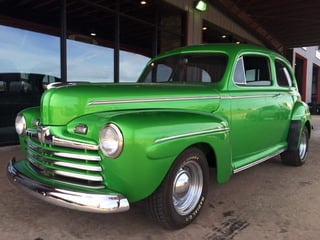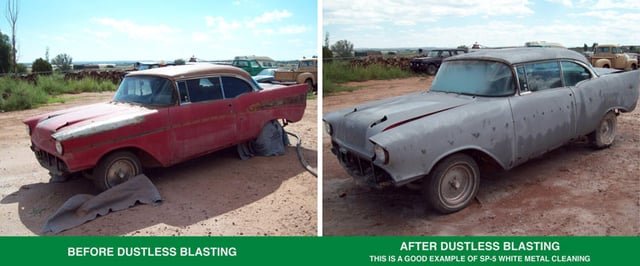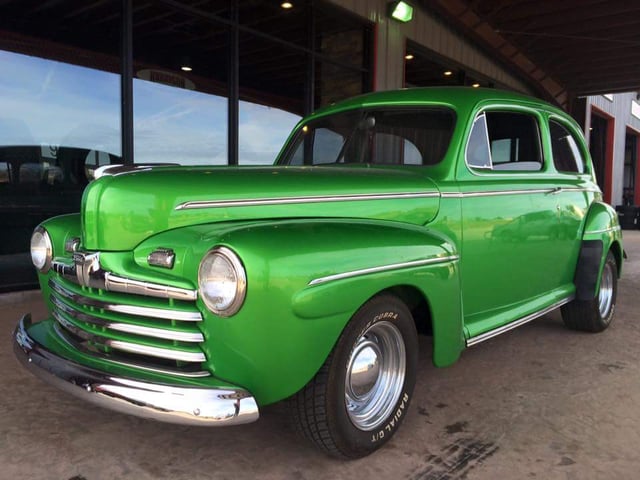
If you’re restoring a classic car, or bringing an antique back to life, you don’t want all your hard work to be ruined by a shoddy looking paint job. Ironically, the most important part of your paint job happens before you even start painting. Below are 3 key steps to a paint job that looks great, and lasts a long time.
![]() Clean the Surface
Clean the Surface
Removing failing coatings and debris is an essential first step to a great paint job. This process is called surface preparation, and it’s really the foundation of your primer and paint. Studies show that “as high as 80 percent of all coating adhesion failures can be directly attributed to improper surface preparation.”
There are different levels of surface cleanliness, which are summarized here. If you aren’t sure what level of surface cleanliness is necessary for your project, take a look at the paint you’re planning to use. It should designate the degree of surface preparation required.
For something like vehicle paint, an SP-5 White Metal surface is usually ideal. This is where the steel appears to be white or light grey, and no contaminants or stains are visible on the surface. This level of cleanliness can only be achieved by abrasive blasting.

The Dustless Blaster is the ideal tool for blasting cars, because normal media blasting can cause excessive friction, heat, and warping.
![]() Kill the Rust
Kill the Rust
Once rust has started, it’s very hard to make it stop. If a rusty area gets covered in paint, things might look fine for a while, but eventually that paint will start to bubble or flake, as the metal underneath it continues to rust. Blasting to a white metal finish will eliminate the active rust, but will not necessarily remove the cause of the rust.
With the Dustless Blasting process, it’s super easy to eliminate the cause of rust. Simply use the Dustless Blasting Rust Inhibitor according to the instructions in this video. Not only will it keep your metal rust free for up to 72 hours, but it also improves coating adhesion, and enhances long term coating performance!
![]() Profile the Metal
Profile the Metal
An “anchor profile” or “anchor pattern” refers to the microscopic peaks and valleys on a surface. These peaks and valleys give the paint something to grab onto, helping the coating stay stronger for longer.
With the Dustless Blaster, you can change the depth and intensity of this profile by using different abrasives. For automotive paint, some of our Dustless Blasting contractors like the 40/70 crushed glass media, while some prefer the slightly smoother profile left by sugar sand.

This car was stripped with the Dustless Blaster by Metal Mayhem Custom and Collision.
We're not going to teach you how to paint in this short blog, but keeping these three simple things in mind will give your paint a great foundation for success.

